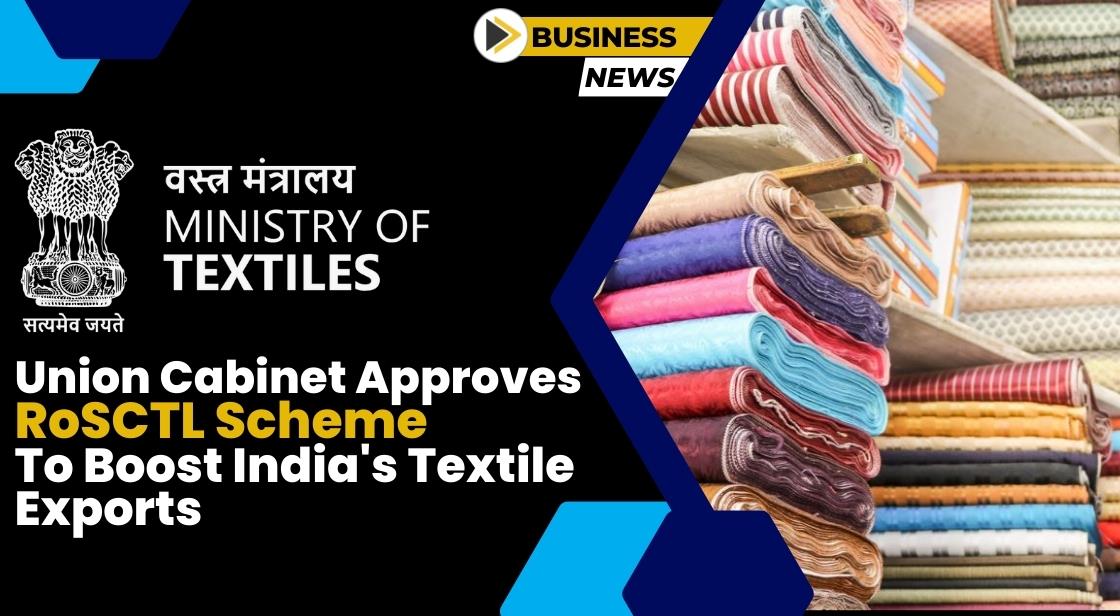Union Cabinet Approves RoSCTL Scheme to Boost India's Textile Exports

News Synopsis
In a significant move to boost India's textile exports, the Union Cabinet led by Prime Minister Narendra Modi approved the continuation of the exemption scheme for state and central taxes and levies for exports, in apparel, textiles and made-ups till 31st March 2026.
The two-year extension is a strategic decision aimed at providing a stable policy framework. Such consistency is considered critical for long-term business planning, and especially in the textile sector where orders are often placed in advance for extended delivery periods.
RoSCTL has proved instrumental in enhancing the competitiveness of Indian exports in the apparel and made-up segment, key components of the textile value chain. By expanding the scheme, the government aims to maintain predictability and consistency in the policy regime, reduce the burden of taxes and levies, and promote equal opportunity. The underlying principle here is clear: "Goods are exported, not domestic taxes." "
This is not the first time that the Union Cabinet has approved RoSCTL. The scheme was initially approved till 31st March 2020, and was later extended till 31st March 2024. The existing extension till 31st March 2026 is a strategic move to further enhance the export competitiveness of clothing and made-ups, making these products costlier.
RoSCTL aims to offset the Duty Drawback Scheme as well as state and central taxes and levies on the export of garment/apparel and made-ups through the exemption mechanism. This is in line with the internationally accepted principle that taxes and duties should not be exported, ensuring a level playing field in the international market for exports.
The scheme covers a broad spectrum of taxes and levies, including VAT on fuel used in transportation, mandi tax, electricity charges and embedded SGST on inputs such as pesticides and fertilisers. The exemptions for central taxes and levies include excise duty on transport fuels, embedded CGST on inputs and compensation cess on coal used in power generation.
In particular, products falling outside the scope of RoSCTL (except Chapters 61, 62 and 63) are eligible to receive benefits under Remission of Duties and Taxes (RoDTEP) on Exported Products along with other products.
RoSCTL has played an important role in promoting competitiveness in the labour-intensive sectors of the textile value chain. The current extension of two years is expected to provide the necessary stability for long-term business planning in the textile sector.
Finally, the Union Cabinet's approval for continuation of the RoSCTL scheme underlines the government's commitment to boost India's textile exports, promote global competitiveness and ensure a conducive environment for sustained growth in the sector.
You May Like









